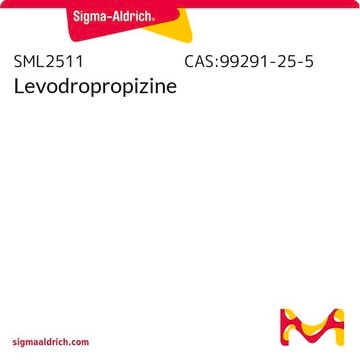I0627
Isobarbituric acid
analytical standard
Synonym(s):
2,4,5-Trihydroxypyrimidine, 5-Hydroxyuracil
Sign Into View Organizational & Contract Pricing
All Photos(1)
About This Item
Empirical Formula (Hill Notation):
C4H4N2O3
CAS Number:
Molecular Weight:
128.09
Beilstein:
127205
EC Number:
MDL number:
UNSPSC Code:
41116107
PubChem Substance ID:
NACRES:
NA.24
Recommended Products
grade
analytical standard
Quality Level
Assay
~98%
technique(s)
HPLC: suitable
gas chromatography (GC): suitable
mp
>300 °C (dec.) (lit.)
application(s)
forensics and toxicology
pharmaceutical (small molecule)
veterinary
format
neat
SMILES string
O=C1CNC(=O)NC1=O
InChI
1S/C4H4N2O3/c7-2-1-5-4(9)6-3(2)8/h1H2,(H2,5,6,8,9)
InChI key
FQXOOGHQVPKHPG-UHFFFAOYSA-N
Looking for similar products? Visit Product Comparison Guide
Application
Refer to the product′s Certificate of Analysis for more information on a suitable instrument technique. Contact Technical Service for further support.
Storage Class Code
11 - Combustible Solids
WGK
WGK 3
Flash Point(F)
Not applicable
Flash Point(C)
Not applicable
Personal Protective Equipment
dust mask type N95 (US), Eyeshields, Gloves
Choose from one of the most recent versions:
Already Own This Product?
Find documentation for the products that you have recently purchased in the Document Library.
Grégory Eot-Houllier et al.
Nucleic acids research, 33(1), 260-271 (2005-01-14)
Clustered DNA lesions, possibly induced by ionizing radiation, constitute a trial for repair processes. Indeed, recent studies suggest that repair of such lesions may be compromised, potentially leading to the formation of lethal double-strand breaks (DSBs). A complex multiply damaged
Gunn A Hildrestrand et al.
Experimental cell research, 315(15), 2558-2567 (2009-05-30)
Adipose-tissue derived mesenchymal stem cells (AT-MSCs) are a promising tool for use in cell-based therapies. However, in vitro expansion is required to obtain clinically relevant cell numbers, and this might increase the chance of genomic instability. DNA repair is crucial
Grégory Eot-Houllier et al.
Nucleic acids research, 35(10), 3355-3366 (2007-05-01)
Evidence has emerged that repair of clustered DNA lesions may be compromised, possibly leading to the formation of double-strand breaks (DSB) and, thus, to deleterious events. The first repair event occurring at a multiply damaged site (MDS) is of major
William R Markesbery et al.
Antioxidants & redox signaling, 8(11-12), 2039-2045 (2006-10-13)
Oxidative damage to DNA may play an important role in aging and neurodegenerative diseases such as Alzheimer's disease (AD). Attack on DNA by reactive oxygen species, particularly hydroxyl radicals, can lead to strand breaks, DNA-DNA and DNA-protein cross-linking, sister chromatid
Jason L Parsons et al.
Nucleic acids research, 35(4), 1054-1063 (2007-02-01)
Base excision repair (BER) is the major pathway for the repair of simple, non-bulky lesions in DNA that is initiated by a damage-specific DNA glycosylase. Several human DNA glycosylases exist that efficiently excise numerous types of lesions, although the close
Our team of scientists has experience in all areas of research including Life Science, Material Science, Chemical Synthesis, Chromatography, Analytical and many others.
Contact Technical Service








